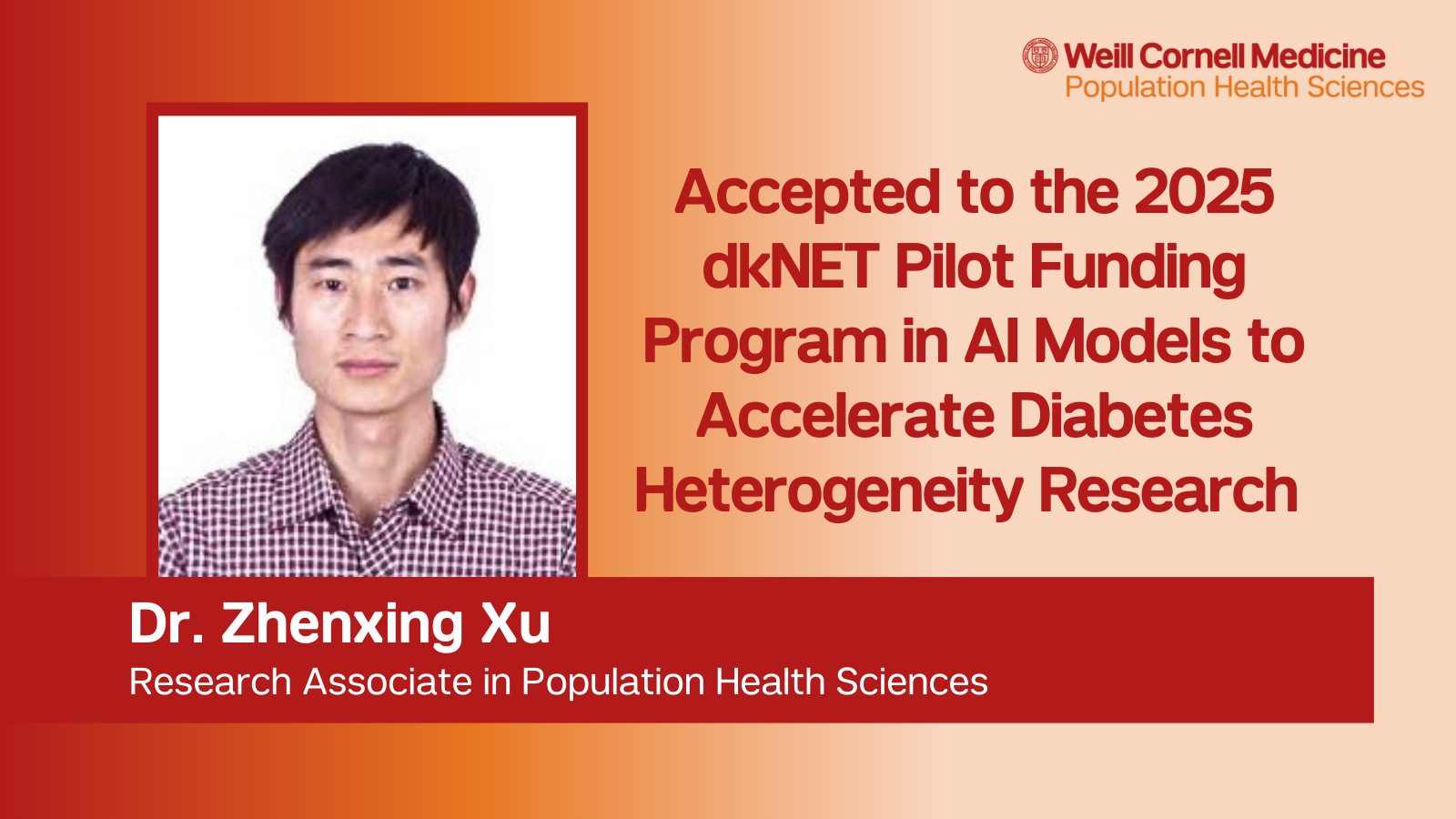
Dr. Zhenxing Xu, research associate in population health sciences, has been accepted to the 2025 National Institute of Diabetes and Digestive and Kidney Diseases Information Network, or dkNET, Pilot Funding Program in Artificial Intelligence (AI) Models to Accelerate Diabetes Heterogeneity Research. This program aims to use rapid advances in AI and other data science areas to address gaps in the study of Type 2 diabetes (T2D) heterogeneity.
T2D currently affects over 37 million people in the US, contributing to significant morbidity, mortality, and health care costs. Research thus far has not captured the breadth of how the disease functions, as patients display a wide range of disease progression patterns and varying responses to treatment.
Dr. Xu aims to use machine learning and electronic health record (EHR) data from the All of Us research program and the INSIGHT Clinical Research Network to identify comprehensive clinical progression subtypes for T2D, illustrating how the disease evolves over time.
“Machine learning models have previously enabled us to identify subtypes for multiple diseases such as acute kidney injury, depression, Parkinson’ disease, and sepsis,” he explained. “We can apply and develop similar methods to investigate diabetes more thoroughly.”
Dr. Xu also plans to use a home-grown comprehensive biomedical knowledge graph to interpret the subtypes of T2D. With this graph, researchers can characterize each subtype comprehensively. “We hope our findings will provide new insight to clinicians, allowing them to personalize the intervention and management strategies that are used to treat T2D,” he said.
Dr. Xu is working with Dr. Chang Su, assistant professor of population health sciences and Walsh McDermott Scholar in Public Health, and Dr. James H. Flory, associate professor of population health sciences and associate attending physician on the endocrinology service at Memorial Sloan Kettering Cancer Center. Dr. Xu extends gratitude to Dr. Fei Wang, associate dean for artificial intelligence and data science, director of the Institute of Artificial Intelligence for Digital Health (AIDH), chief of the Division of Health Informatics and Artificial Intelligence, and professor of population health sciences for his support. He also extends gratitude to members of the Department of Population Health Sciences, the Division of Health Informatics and Artificial Intelligence, INSIGHT, and the grants and finance team.
“Integrating large-scale EHR data with AI provides a powerful opportunity to deepen our understanding of T2D progression heterogeneity and to accelerate the development of effective treatments,” Dr. Xu said. “Our goal is to establish a scalable computational pipeline that not only advances T2D research but can also be applied to other complex human diseases.”
- Highlights

